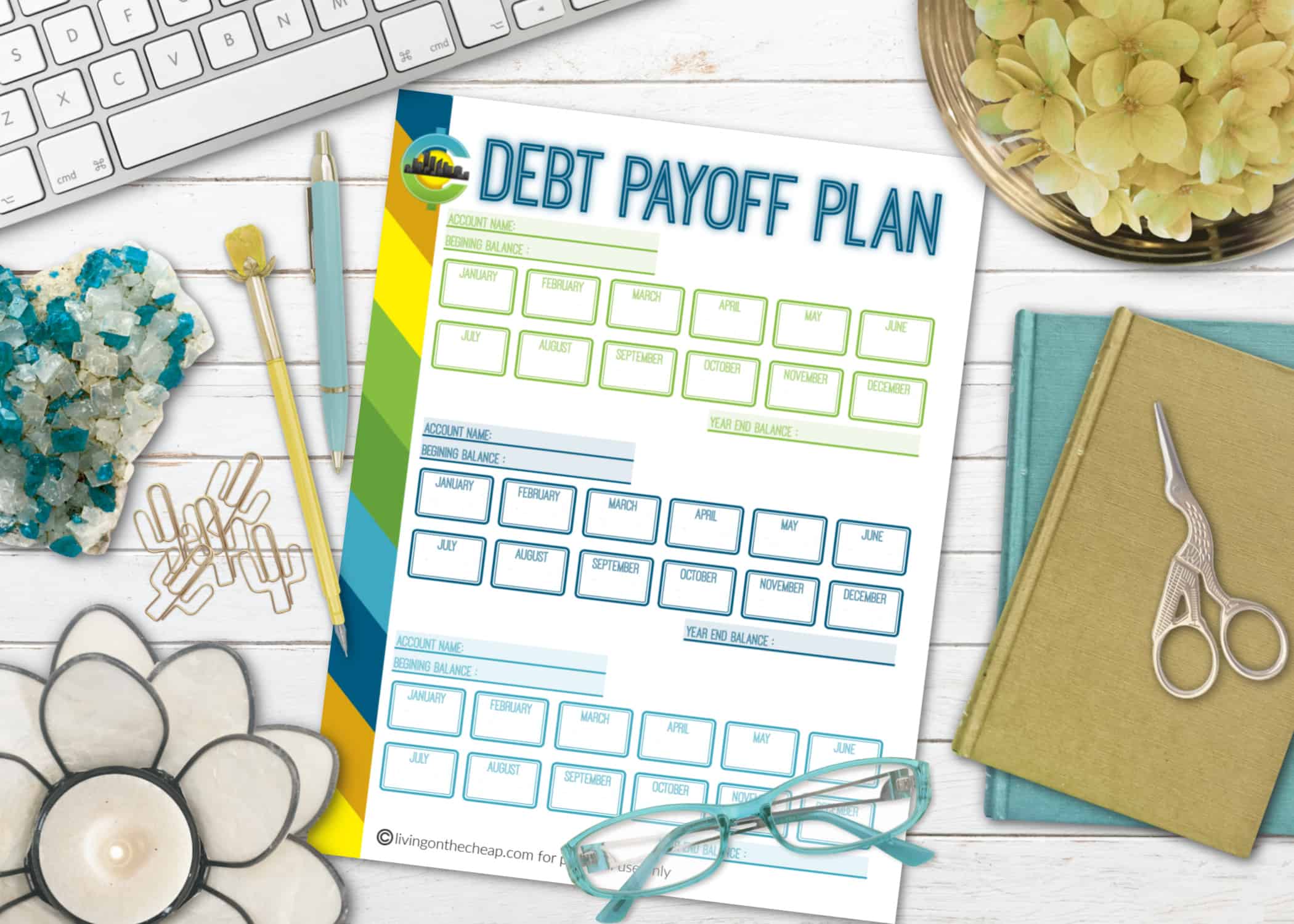I was in the ring fighting my opponent: debt.
I had the idea of putting together a debt challenge. I thought, “What if I turned paying off debt into a game, and whoever paid off the most debt would win?” I wasn’t sure if anyone would sign up, but I decided to write a post about the contest anyway.

Photo: Deposit Photos
How to organize a debt payoff challenge
The race required each player to pay $5 a week for 11 weeks ($55). At the end of the 11 weeks whoever put down the most money towards his or her debt of choice would win the money, which amounted to $550 from the 10 players, including me. Each week each player would have to send me a screenshot of the debt that had been paid. I would compile the updates into a chart and share it with the group at the end of the week.
The winner could use this money to pay off a large chunk of debt, throw it into savings, or do whatever he or she pleased with the money.
There was a $1 fee each week, so technically each player paid $66 total. I wanted this challenge to be more of a debt support group where a group of people could come together talk about their struggles and their victories in a safe place, without feeling embarrassed.
Everyone had a different reason for joining the challenge. A few of the contestant responses are listed below
“I have a lingering consumer debt account that I’ve been trying to pay off for some time now. I believe this competition will provide me the necessary pressure to eliminate the debt sooner rather than later, thus freeing up capital to invest rather than spend.”
“I’ve made many attempts in the past to pay down various credit card debts. Normally I get pretty close, but life always inevitably interferes and I go right back into debt on my cards. I’m hoping through this challenge I can get back on the right path of paying off my debt with the help of a support group who are all looking to do the same.”
“I like competitions and I am already very committed to getting rid of my student loans sooner rather than later. I am also curious if this approach (this challenge) actually helps to motivate people to get rid of their debt.”
Since it was my first time holding a debt challenge I wanted to keep the group small. I also decided to participate in the challenge; although I couldn’t win I ended up paying off $4,111 of my own student loan debt.
In week one of the debt challenge I had $4,111 left to pay on one of my student loans. By week 9 I had $1,000 left to pay. I realized that before the challenge my debt wasn’t moving because I wasn’t really focused on paying it off. Sure, I told myself that one of my goals was to pay it off, but I wasn’t really dedicated to it.
I had about seven other money goals that I was trying to accomplish at once. My focus was split, so I was making very minimal progress.
Drops in the buckets vs. gallons at once

If your debt isn’t moving it could be because you’re only paying the minimum amount. When you only pay the minimum amount it’s hard to see any progress. You could also have too many money goals that you’re trying to accomplish at once. So you’re trying to put a few drops of water over seven different buckets instead of pouring a whole gallon of water over one or two buckets at a time.
I wanted to create a challenge to pay off debt because paying off your debt alone can be boring. People like being competitive, so I thought If I could create a competitive factor that people would be more likely to pay off their debt faster.
Sometimes our friends place more emphasis on things that aren’t healthy for you. If our friends can pressure us into taking another drink, or buying that pair of shoes because “we deserve it,” why can’t our friends pressure us into paying off our debt? That’s really what this debt challenge was about. Helping support each other pay off our debt, like a debt support group.
The competition factor played a huge role into me stepping up my debt payment game. The first few weeks I was only paying a few hundred dollars, and then I noticed people in the group were paying $1,000-plus and I felt as though I were slacking and had to pay off more.
The contestants were able to submit multiple debt payments. If the goal was to pay off the most debt, I didn’t want to limit people who wanted to pay off more than one debt at a time.
Each week every person would send me a screenshot of the debt they paid off that week. Some weeks were better than others. As you know, life happens and we may not always be able to put as much money towards our debt as we planned, but that doesn’t mean we have to lose sight of our goal. Baby steps are still steps in the right direction.
Becoming debt free

Photo: Deposit Photos
One person in the group even became debt free.
“OMG! I am so happy to have that monkey off my back. Thank you SO MUCH for the extra motivation! It’s kinda like cleaning my apartment. I get more done in the 30 minutes before my guests arrive than if I had all day to clean.
Now it’s time to work on my 3-6 month emergency fund!. In other news, our office received bonuses this week. For the first time, I didn’t have to plead, negotiate, bribe myself. You know, ‘OK, Bianca, you can have $100 to play with but the rest has to go to VISA.’ It feels great!
Emergency fund, here we come! And a tropical (but budget-friendly) vacay. Because I freaking deserve it! And can actually afford it for a change.”
In the beginning, I was nervous about starting this debt challenge. I didn’t know who would join me. I didn’t even know someone would end up debt-free. I am so happy I could help motivate people to pay off their debt.
If your debt isn’t moving, it could be because you’re not really focused on moving it. Sure, you may be telling yourself that you want to get rid of your debt, but are your actions really aligning with your words? Am I really dedicated to paying off my debt? Ask yourself these questions.
More Living on the Cheap articles about finances:
- Smart habits of millionaires
- 10 Depression Era hacks and frugal living ideas to save money now
- Things you’re wasting money on and how to stop
- How frugal are you? 25 things frugal people do
- Ways to save more money this year
- Change your bad spending habits and save money
- How to deal with your post-holiday financial hangover
- 10 ways to get your financial life in order
